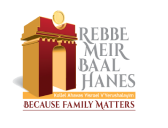Home » Bar mitzvah

the Bar Mitzvah
Celebration
boy into adulthood. As he reaches physical, intellectual,
and spiritual maturity, it’s cause for celebration!
Mitzvah of a family
member or friend
charitable cause.
A Bar Mitzvah marks the transition of a thirteen-year-old boy into adulthood. As he reaches physical, intellectual, and spiritual maturity, it’s cause for celebration!
Share in the Bar
Mitzvah of a family
member or friend
Send a meaningful gift to a
charitable cause.
Share in the Bar
Mitzvah of a family
member or friend
Send a meaningful gift to a
charitable cause.
Make Your Family’s Bar Mitzvah Celebration Even More Meanginful
Bring joy to an impoverished Bar Mitzvah boy in Israel by
helping to cover the basic costs of his Bar Mitzvah celebration.
CHAI
$180
Double
Deal
$360
triple
score
$540
Go for
the Gold
$3,528
Other
The Meaning Behind a Bar Mitzvah
The traditional Jewish ceremony of the Bar Mitzvah marks the transition between childhood and adulthood, and is rich in traditions that transform the Bar Mitzvah day into an experience of commitment, connection, and giving. Let’s use the following information to answer the questions of ‘What is a Bar Mitzvah and why is it important?’
What Happens at a Bar Mitzvah Ceremony?
A Jewish boy becomes Bar Mitzvah when he reaches his thirteenth Hebrew birthday (and a girl becomes a Jewish Bas Mitzvah at the age of twelve). Now officially an adult, a Bar Mitzvah boy can be counted as one of the ten men needed to make up a minyan (quorum) for daily prayer.
In addition to this new and exciting status, a Bar Mitzvah boy also starts to put on tefillin when he prays each weekday morning. What happens at a Bar Mitzvah for a boy is that this newfound ability to contribute to the community is celebrated and highlighted in a unique and public way: the Aliyah for Bar Mitzvah. But what is an Aliyah at a Bar Mitzvah?
As part of each week’s Shabbos morning prayer service, the weekly portion of the Torah is read. In many communities, it is therefore customary for the Bar Mitzvah boy to be called up to read from the Torah, a privilege known as an Aliyah. The Bar Mitzvah chants the ‘Maftir’ portion, the final lines of the Torah portion, and the ‘Haftorah’, the reading from the prophets which follows the Torah reading. Family and friends come to shul to join in this special event a Jewish celebration of manhood. Once the Bar Mitzvah boy has finished reading, women happily toss candies in his direction. and the air fills with Bar Mitzvah congratulations to parents. There are a wide range of Bar Mitzvah wishes that are typically offered, ranging from “happy Bar Mitzvah” to blessings of mazel tov on the occasion of this auspicious Jewish coming of age tradition. After the prayer service, guests usually enjoy a festive reception in a nearby hall, where a Bar Mitzvah Torah portion speech is delivered by the new adult.
When do Bar Mitzvah Preparations Begin?
The transition from boyhood to manhood marks a significant milestone and a newfound responsibility. Preparations for this special day therefore often begin many months in advance.
- Tefillin (phylacteries) that are worn from Bar Mitzvah age and on, must be ordered from a reputable sofer (scribe). Tefillin are stored in a special velvet pouch that is often embroidered with the Bar Mitzvah boy’s name or initials and a design of his choice.
- Over a period of some months, a qualified teacher or rabbi teaches the Bar Mitzvah boy how to chant his portion of the Torah with the correct cantillation. The Bar Mitzvah boy usually practices so much that the entire family becomes familiar with the reading. The joy and pride that comes with this effort, though, makes the Bar Mitzvah torah portion an unforgettable part of every young man’s journey to adulthood.
- Six months prior to the Bo Bayom, the Bar Mitzvah birthday date, the Bar Mitzvah boy begins to study the laws that pertain to tefillin.
- Learning one of six tractates of Mishna or on a specific Gemara tractate begins, usually with a father, teacher, or other male relative. A Bar Mitzvah drasha, a speech which the Bar Mitzvah boy delivers at the celebration, often is based upon this knowledge.
- The Bar Mitzvah boys usually starts putting on tefillin in the morning prayer service 30 days before his Hebrew birthday as practice. Refreshments are often brought to the synagogue to allow others to share in this joyful Jewish coming of age tradition.
- A Bar Mitzvah reception often involves much preparation. The family will put much thought into the venue, the menu, the invitations, and the clothing that they will wear all to highlight that their son is now joining the ranks of the larger community of Klall Yisrael (the Jewish nation).
Naturally, all of these preparations add to the excitement and enthusiasm that the family feels. Of course, though, behind all the practical questions that get asked and that must be answered before the big day – such as ‘What does the boy wear at his Bar Mitzvah?’ ‘What is Bar Mitzvah gift etiquette there’s an underlying value: we invest so much in what happens at a Bar Mitzvah because this event marks the point when a child prepares to commit to the mitzvos that define his identity and nation’s destiny.
Bar Mitzvah Milestone Markers
- Tefillin
On this special day, one new mitzvah a Bar Mitzvah boy becomes obligated in is the mitzvah of tefillin. From this meaningful point onward, he wears tefillin on a daily basis and is counted towards a minyan, the quorum of ten Jewish men required for a formal prayer service. The two square, black leather boxes of the tefillin are worn on the bicep of the dominant hand and the front of the head. The parchments in the tefillin speak about God’s unity, the obligation to observe the commandments, and the responsibility to transmit Judaism to our descendants. The placement of tefillin on the arm and head therefore represent the two ways that a Jew serves God in this world: with actions and with thoughts. These two modes of service must work together. Our minds offer us insight and perspective; our actions then must mirror the knowledge of truth. When a Bar Mitzvah boy binds his tefillin onto his arm and his head, he symbolically binds himself to the will of G-d in both thought and deed. What is the purpose of a Bar Mitzvah if not to imbue this lofty concept in this new mature addition to the Jewish people?
- Aliyah
Traditionally, what happens at a Bar Mitzvah is a special event commonly referred to as an “Aliyah for Bar Mitzvah.” A Bar Mitzvah boy is honored on the first Shabbos that follows his thirteenth birthday by being called up to the Torah reading. The ceremony of getting called up for the Torah reading is called an “Aliyah,” meaning “ascent.”
There are two reasons why the word “Aliyah” is used to describe this special aspect of the Bar Mitzvah ceremony: Literally, the person who is called up must ascend to the platform where the Torah is read from. At the same time, the excitement and sense of belonging that are experienced when being part of a significant community give the Bar Mitzvah boy a feeling of spiritual elevation and ascent as well.
Since only adult males can be called up to recite a blessing on a portion of the Torah reading, a Bar Mitzvah boy’s “Aliyah” serves as a public declaration that he is no longer a boy, but now has achieved the status of a man. Originally, the person called up to recite the blessing would also read a section from the Torah himself. But since many people lack the necessary training to do so, in many communities a designated “reader” reads the section out loud, while the person called up reads along quietly or listens. A bracha is recited before and after that portion of the reading. In many communities, it is customary for the Bar Mitzvah boy to be called up to read the ‘Maftir’ portion, the final section of the Torah reading for the week, and the ‘Haftorah’, the reading from the prophets which always follows the Shabbos Torah reading. What part of the torah is read at a Bar Mitzvah therefore varies from person to person depending on the weekly Torah portion of when his Bar Mitzvah falls out. Helpful online tools like a Bar Mitzvah calculator can help you pinpoint your specific maftir Bar Mitzvah and haftorah.
- Seudah
Traditionally, the Bar Mitzvah celebration is marked with a festive meal, singing, and dancing. The palpable joy at the reception gives the Bar Mitzvah boy a clear message: the significance of a Bar Mitzvah lies in that, as adult, you are now obligated in the mitzvos which bind you to G-d, your nation, and eternity. This obligation is marvelous, so let’s celebrate!
Most families choose to host this seudah on the ‘Bo Bayom’, the actual day of the boy’s thirteenth birthday. You’ve probably noticed that Judaism places much emphasis on culinary delights as a marker for a Simcha. That’s because indulging in good food leads to joyful, expansive feelings that mark the occasion as festive in a very real way. These positive feelings are there to help us internalize the deeper meaning of what we’re celebrating.
At the celebratory meal, it is customary for the boy to make a Siyum on any learning he has completed, as well as to deliver a Bar Mitzvah ‘pshetel’ or ‘drasha’, a speech related to halachos of becoming Bar Mitzvah. Some sources say that this custom dates back to our forefather Yaakov. On the day of Yaakov’s Bar Mitzvah, he discussed some of the laws connected to the birthright.
The Meaning of a Jewish Bar Mitzvah

What is a Bar Mitzvah? Let’s define Bar Mitzvah. These two words, meaning “son of commandment,”
mark a new status for every Jewish boy as he turns 13 years old.
- What’s behind “bar?” Wondering why our Sages chose to use the Aramaic word “bar” for “son,”
instead of the more usual Hebrew word “ben”? The word bar also means “outside.” It hints to the
young Bar Mitzvah boy that he is now standing “outside.” At this point he has left behind his childhood and
is standing on the threshold of his adult life. - What’s behind “mitzvah?” The word “mitzvah,” commandment, is related to the word “tzavta,” binding. Every mitzvah is an act of love that binds us to God. The age of 13 marks a boy’s new accountability for his own fulfillment of mitzvos as an adult according to Torah standards.
Our sources teach us that just as our bodies grow, our souls also grow. When a boy becomes a Bar Mitzvah at 13 years old, a new level of his soul comes into awareness. He becomes a new creation. Until now, he observed the commandments as a sort of training camp. But upon becoming a Bar Mitzvah, he is now obligated in all the commandments of the Torah. At this important juncture, he has the capacity to decide the correct path to choose and to be held accountable for his choices.
An Auspicious Time for Charity
In Hebrew, the root of the verb “to give” is “natan.” Notice that in both Hebrew and English, the verb can be read forward and backward (Fun fact: it’s called a palindrome.) This teaches us that when we give “tzedakah”, meaning charity, we also get. What do we get? We turn ourselves into better people. How appropriate it is when a Bar Mitzvah boy, immediately upon acceptance of mitzvos, to increase his mitzvos and elevate himself through charity. By both giving and thinking of those less fortunate who cannot celebrate their special day in comfort, the Bar Mitzvah boy signals that the message of his tefillin – that both thought and deed matter are not lost on him.
According to some sources, arranging a feast in honor of a Bar Mitzvah is a mitzvah in itself. That means that by donating towards the cost of a poor Bar Mitzvah boy’s festive meal, you accrue multiple merits: for giving charity, for helping to arrange a Bar Mitzvah seudah, and for creating a lasting, precious legacy of giving for a Bar Mitzvah boy and his family.
Twinning Your Bar Mitzvah
A Bar Mitzvah ceremony is an important rite of passage. It’s a transition to adulthood that should foster a new-found level of empathy and a sense of social responsibility in a Bar Mitzvah boy. Helping someone who doesn’t have the same privileges that you have shows that you aspire to build yourself into a better person.
Bar Mitzvah celebrations can sometimes be lavish. Sponsoring another Bar Mitzvah on your own Bar Mitzvah day (‘twinning’) helps to deflect attention from the lavish parties and redirect the focus to philanthropic efforts that give you eternal merit.
Why give a Bar Mitzvah donation to your favorite charity instead of a Bar Mitzvah gift?
You’ll most likely spend a lot of time thinking about the pros and cons of different Bar Mitzvah gifts, and wondering about the appropriate amount for a Bar Mitzvah money present. While you’ll be able to come up with plenty of Bar Mitzvah ideas, a donation to your favorite charity, in lieu of a Bar Mitzvah present, is possibly one of the most meaningful gifts you’ll ever make. Here’s why: a Bar Mitzvah celebrates the young person becoming obligated in the commandments and one of the most treasured commandments is the mitzvah of charity. Your donation will imprint Jewish values into the soul of the Bar Mitzvah boy. Given that understanding, it’s not hard to understand why so many families place “in lieu of gifts” note-cards in their invitation envelopes.
Bar Mitzvah Customs from Around the World
When did bar mitzvah begin? The first Bar Mitzvah celebrated was when our forefather Avraham made a Bar Mitzvah ceremony for his thirteen-year-old son Yitzchak. Since then, many customs have evolved. Tossing candy at the Bar Mitzvah boy after he completes his Torah reading is a favorite among adults too! Some sources trace this tradition back to the Talmud, which mentions the custom of pouring wine and tossing corn and nuts before a bride and groom as a gesture of good luck and blessing.
Here’s a list of a few more of our treasured customs:
- Receiving blessings from a great rabbi
- Some receive a new watch to symbolize the importance of treasuring time
- Accompanying the Bar Mitzvah boy home from the synagogue with singing on the Shabbat of the Bar Mitzvah
Rabbi Meir Baal Haness Charities Provide a Bar Mitzvah for the Poor and Orphans
A Bar Mitzvah is a joyous occasion for the entire Jewish people. Every Bar Mitzvah boy who joins our ranks helps ensure our continued existence. He is a guarantor of our spiritual responsibility. Your donation helps us give a Bar Mitzvah boy the opportunity to celebrate his milestone with the same feelings of joy, honor, and excitement that all Bar Mitzvah boys look forward to.
By donating towards the cost of tefillin for an orphan or impoverished Bar Mitzvah boy, you guarantee a daily share in the tremendous merit accrued by the recipient of those tefillin.


 We can light a candle on your behalf at Rebbe Meir's Holy Tomb.
We can light a candle on your behalf at Rebbe Meir's Holy Tomb. 